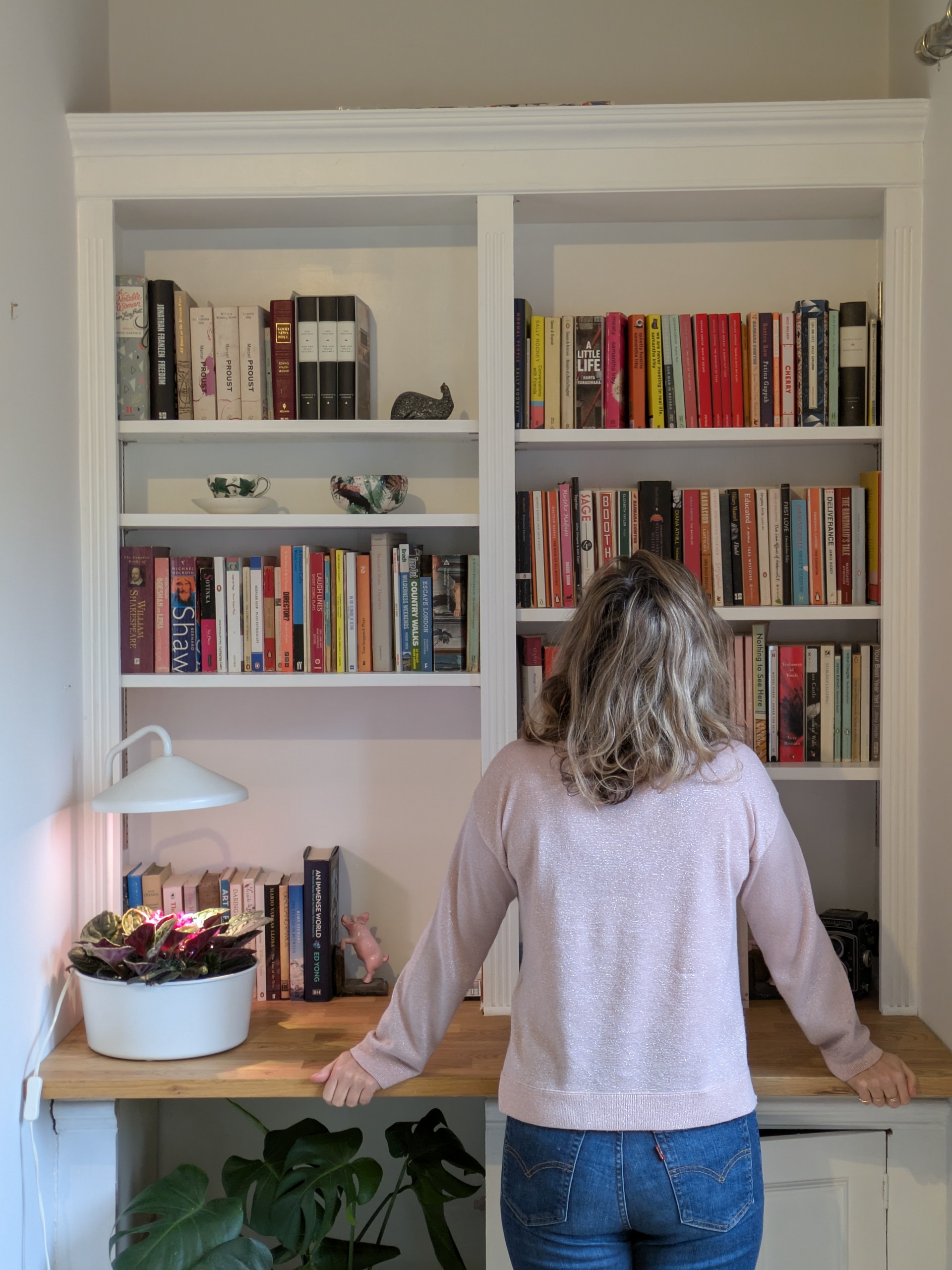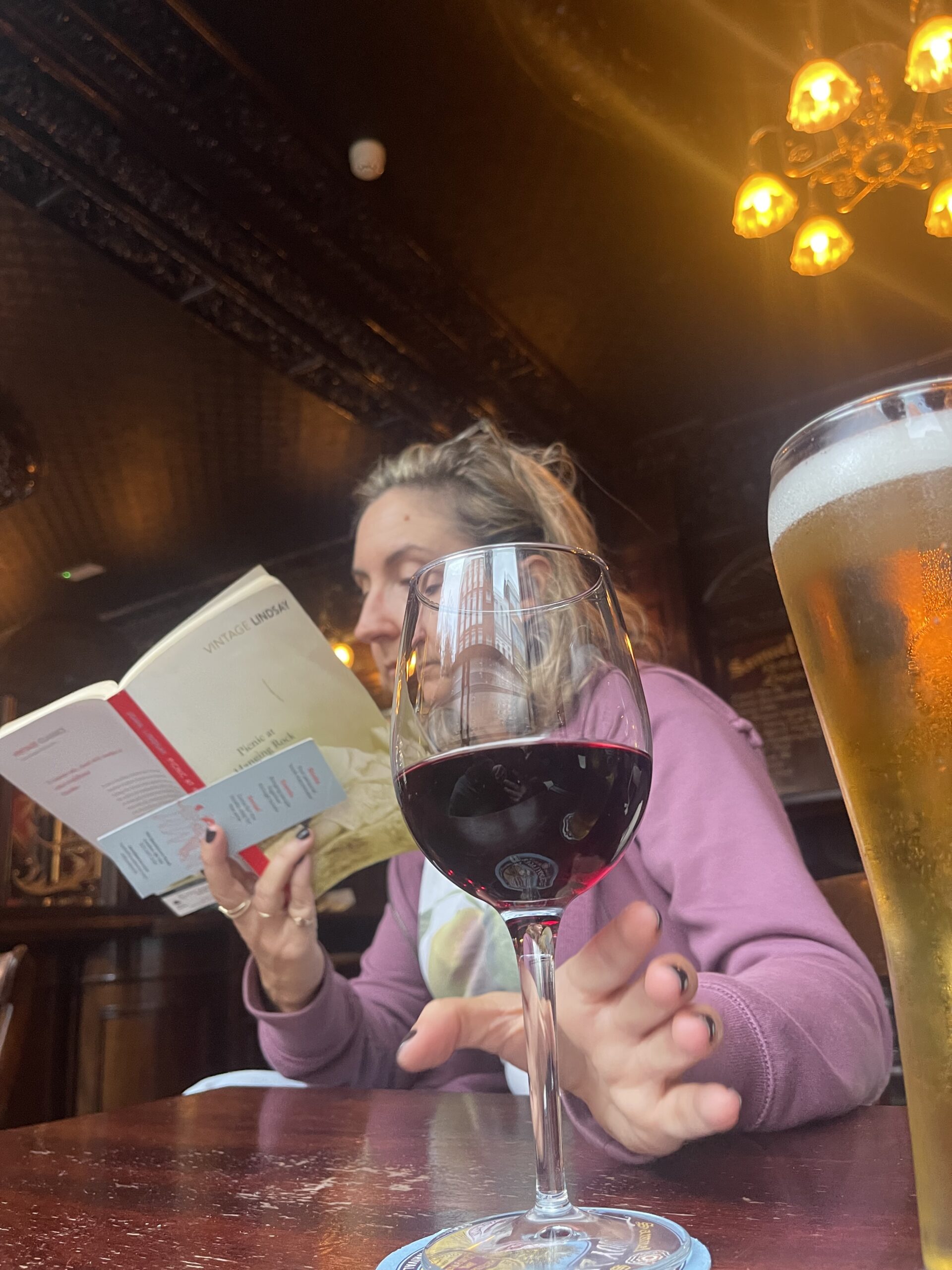Just a re-read of this fantastically wonderful book. HOW DID SHE DO IT!?
Category: Uncategorized
YOU, AGAIN by Kate Goldbeck
Re-read on holiday
HAPPY PLACE by Emily Henry
Re-read on holiday
FUNNY STORY by Emily Henry
Re-read while on holiday
BOOK LOVERS by Emily Henry
Re-read while on holiday
BEACH READ by Emily Henry
Re-red while sick
ME AND YOU ON VACATION by Emily Henry
Re-read while sick
WHAT I READ IN 2024
This year I have read 79 books, the most since 2011. I was surprised; it didn’t feel like any more than normal. Though there was a Greek beach vacation in there where I was reading about a book a day, so perhaps that’s where the numbers come from.
In real life I read in 6 countries, but all in just the one year, of 2024. In reading life I went everywhere, Cairo in the 1950s, Polynesia with Captain Cook, medieval Norway, the Spanish Flu in Connecticut. Looking at this list, I realize what I read shapes what I think about to the point where I do sort of wonder who I’d be without it. Horrifying prospect.
Example, I can hardly look at a plate of food at the moment without thinking of William Woodruff’s memoir of his impoverished 1920s childhood, THE ROAD TO NABEND, in which he explained that they were so hungry that “all meals were our favourite meals.” I don’t think I’ve complained about a dinner since.
Best of the year this year: I have to give it up to Peter Carey’s THE TRUE HISTORY OF THE KELLY GANG, a book about Australian outlaws that is a triumph of narrative voice; SEVENTEEN by Joe Gibson, a really sad memoir about a teacher grooming a male student, and the loss of his twenties to her narcissism; and PRAIRIE FIRES by Caroline Fraser, an unexpectedly wonderful biography of Laura Ingalls Wilder (a writer I don’t even care about). This is my first year ever I think where highlights were more non-fiction and memoir than fiction. Honourable mentions have to go to LOVE LESSONS by Joan Wyndham, astonishing diaries about a young woman’s sex life in the second world war, and don’t laugh, but to THE WOMAN IN ME by Britney Spears, a book that has left me amazed no one has gone to jail yet for what they did to her.
Here’s the list:
THE SINGULARITY IS NEARER by Ray Kurzweil
PRIVATE CITIZENS by Tony Tulathimutte
TROUBLES by JG Farrell
THE SEIGE OF KRISHNAPUR by JG Farrell
WIGS ON THE GREEN by Nancy Mitford
THE EMPEROR by Ryszard Kapuscinki
GERMINAL by Emile Zola
THE MAN OF PROPERTY by John Galsworthy
DINNER WITH VAMPIRES by Bethany Joy Lenz
TOM LAKE by Ann Pratchett
PICNIC AT HANGING ROCK by Joan Lindsay
WILD by Cheryl Strayed
INTERMEZZO by Sally Rooney
A CONSPIRACY OF PAPER by David Liss
THE MARS ROOM by Rachel Kushner
NEVER LET ME GO by Kazuo Ishiguro
THE STRANGER AT THE WEDDING by AE Gauntlett
LITTLE BASTARDS by Mildred Kadish
TOWELHEAD by Alicia Erian
THE DAIRIES OF MR LUCAS: NOTES FROM A LOST GAY LIFE edited by Hugo Greenhalgh
PRAIRIE FIRES: THE AMERICAN DREAMS OF LAURA INGALLS WILDER by Caroline Fraser
DOGGERLAND by Ben Smith
AN HONEST WOMAN: A MEMOIR OF LOVE AND SEX WORK by Charlotte Shane
NEVER SAW ME COMING by Tanya Smith
SHEEP’S CLOTHING by Celia Dale
LIVES OF GIRLS AND WOMEN by Alice Munro
ENEMY WOMEN by Paulette JilesTHE WIDE WIDE SEA by Hampton Sides
ORDINARY HUMAN FAILINGS by Megan Nolan
THE MINISTRY OF TIME by Kaliane Bradley
BANAL NIGHTMARE by Halle Butler
LONG ISLAND COMPROMISE by Taffy Brodesser-Akner
THE FUTURE by Naomi Alderman
THE ROAD TO NAB END by William Woodruff
THE BRIDGE OVER THE RIVER KWAI by Pierre Boulle
THE TRUE HISTORY OF THE KELLY GANG by Peter Carey
THE FLATSHARE by Beth O’Leary
CONVERSATIONS WITH GOETHE by Johann Peter Eckermann
SEVENTEEN by Joe Gibson
ALL FOURS by Miranda July
GREEN DOT by Madeleine Gray
THE INHERITORS by William Golding
SO LONG, SEE YOU TOMORROW by William Maxwell
SMALL FRY by Lisa Brennan-Jobs
PROMISE AT DAWN by Romain Gary
SATURDAY NIGHT AND SUNDAY MORNING by Alan Sillitoe
THE WALL by John Lanchester
FUNNY STORY by Emily Henry
MONEY by Martin Amis
YOU AND ME ON VACATION by Emily Henry
YOU, AGAIN by Kate Goldbeck
ADVENTURES IN MASHONALAND by Rose Blennerhassett and Lucy Sleeman
COLD CREMATORIUM by Jozsef Debreczeni
THE RECOLLECTIONS OF AN ELEPHANT HUNTER 1864-1875 by William Finaughty
SALLY IN RHODESIA by Sheila McDonald
A YEAR ON EARTH WITH MR HELL by Young Kim
HELP WANTED by Adelle Waldman
SUPER-INFINITE by Katherine Rundell
STRAIT IS THE GATE by Andre Gide
LOVE LESSONS and LOVE IS BLUE by Joan Wyndham
SALEM’S LOT by Stephen King
DIRTBAG MASSACHUSETTS by Isaac Fitzgerald
WEIRDO by Sarah Pascoe
THE MANDIBLES by Lionel Shriver
WITH LOVE, FROM COLD WORLD by Alicia Thompson
TRAVELS INTO THE INTERIOR OF AFRICA by Mungo Park
THE PUMPKIN EATER by Penelope Mortimer
CHARLOTTE GRAY by Sebastian Faulks
THE SUITCASE by Sergei Dovlatov
BEER IN THE SNOOKER CLUB by Waguih Ghali
THEY CAME LIKE SWALLOWS by William Maxwell
SOUTH RIDING by Winifred Holtby
AT FREDDIE’S by Penelope Fitzgerald
OLAV AUDUNSSON: VOWS by Sigrid Undset
THE WRONG KNICKERS by Bryony Gordon
THE WOMAN IN ME by Britney Spears
NORMAL WOMEN by Ainslie Hogarth
POOR THINGS by Alasdair Gray
THE TRIO by Johanna Hedman
PICNIC AT HANGING ROCK by Joan Lindsay
The author described writing this book very quickly after a particularly vivid dream, and I totally get it. It tells about some girls at an Australian boarding school in the late nineteenth century who go to a picnic at a local beauty spot. Three of them plus a teacher go on a short walk, and SPOILER ALERT only one of them returns. They are searched for, but never found. That’s pretty much it.
This sounds kind of annoying – you never find out what happened, it is like an open-ended mystery – but it is actually weirdly compelling, and the images have stuck with me for a long time since reading it. Kind of like a dream.
ORDINARY HUMAN FAILINGS by Megan Nolan
I enjoyed this author’s first book, ACTS OF DESPERATION, and read an interview with her where she denigrated it, saying this one – ORDINARY HUMAN FAILINGS – was in her opinion much better. I am amazed. ACTS OF DESPERATION was grippingly grim, but had a enjoyably comic energy and a general direction towards sanity. ORDINARY HUMAN FAILINGS on the other hand is just grim. Like, so grim it starts to feel kind of ridiculous. It’s about child murder (beloved topic of UK cultural life), so obviously I did not expect it to be cheerful, but wow: every single person in it is a venal and depressing failure. I mean all of them. From the damaged mother, to her brother, the tragic alcoholic, to the money-grubbing journalist who writes about them – they are all victims or perpetrators. The only person who actually tries to do something positive is the gran, but don’t worry, there is a long explanation of how she only does this because she was not loved enough as a child. I mean, okay. I just had to quit it.



